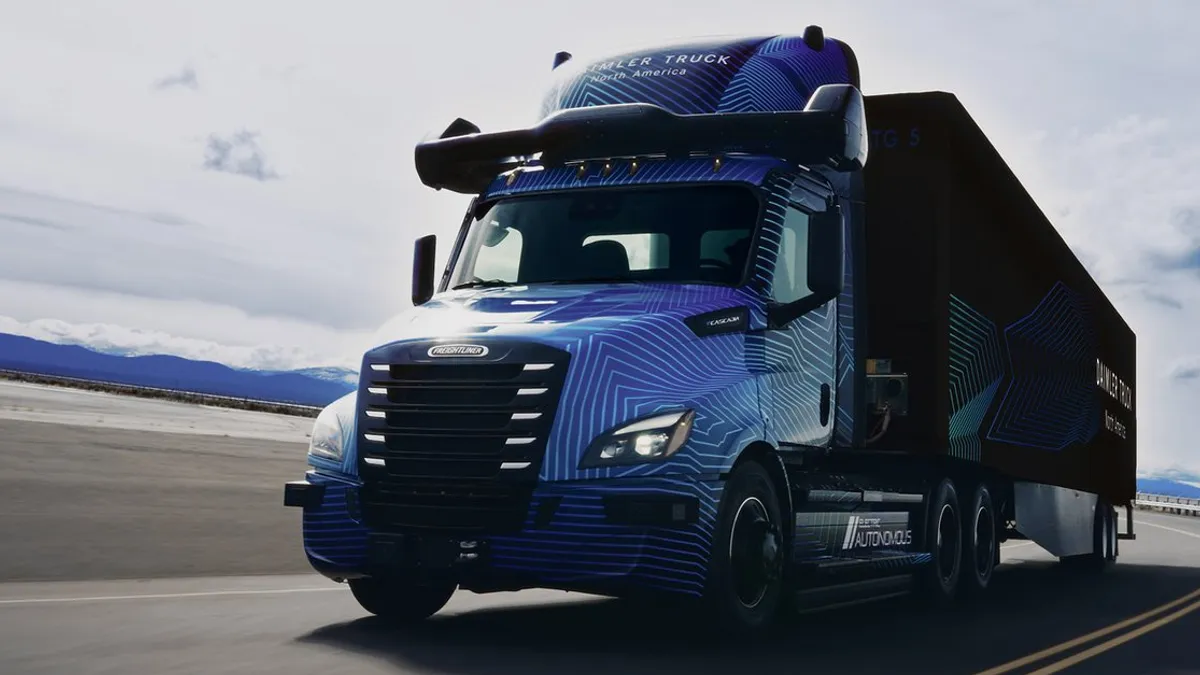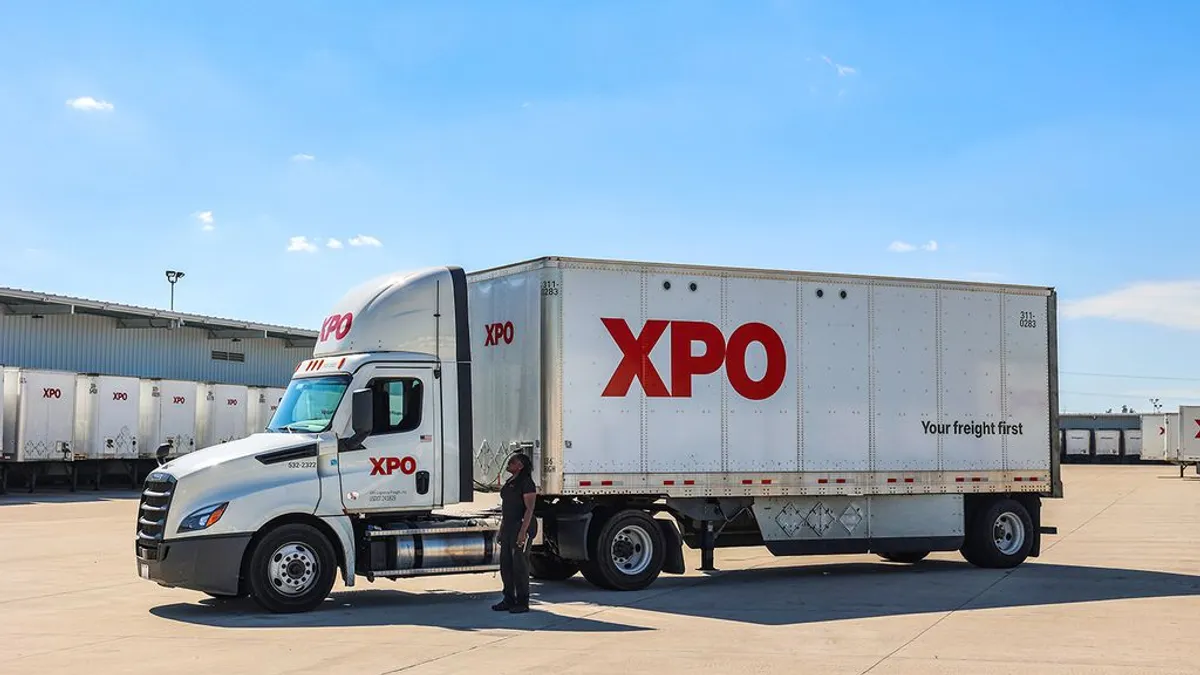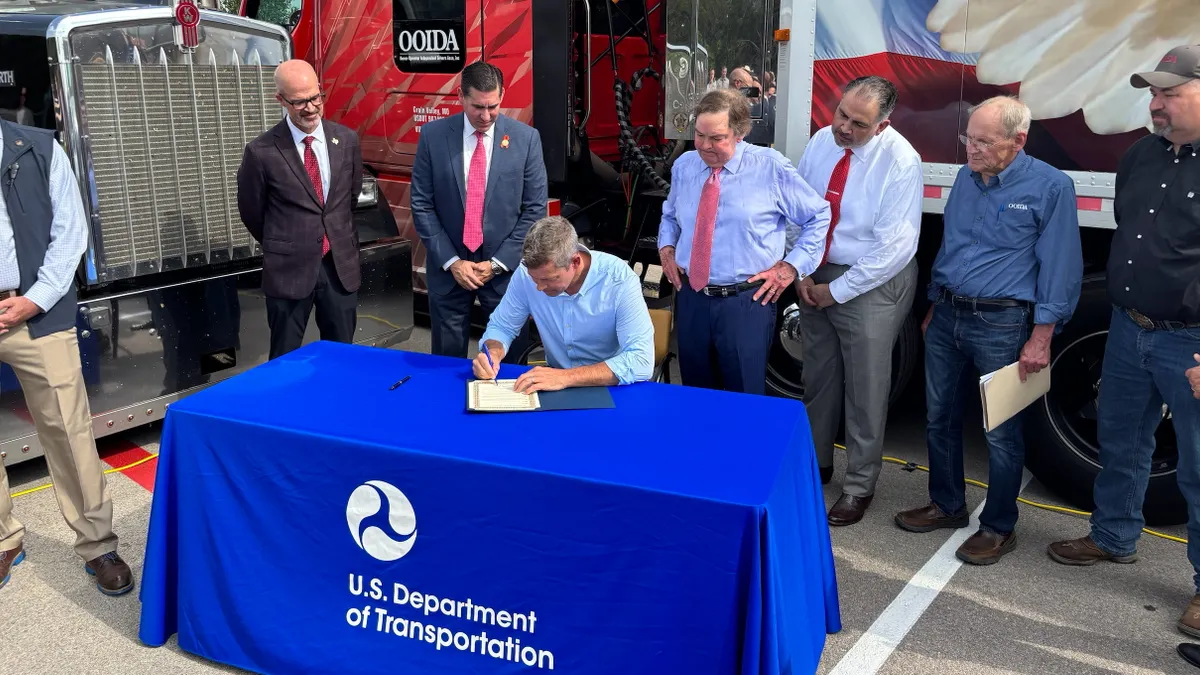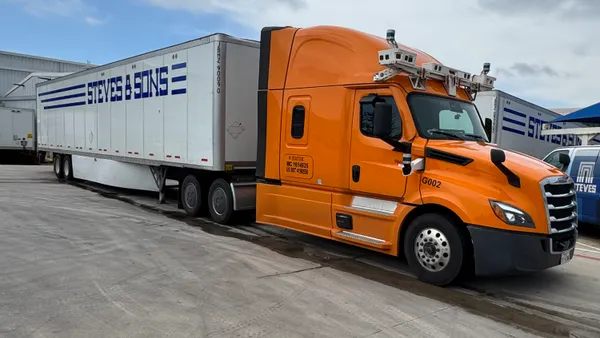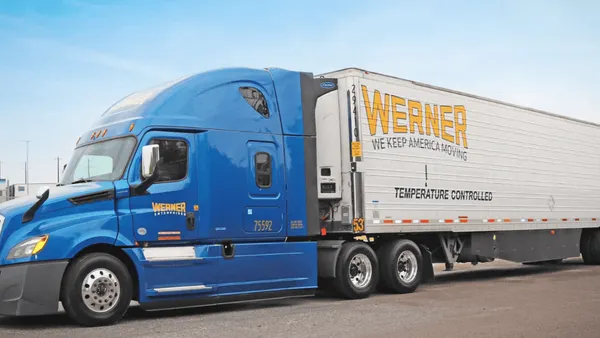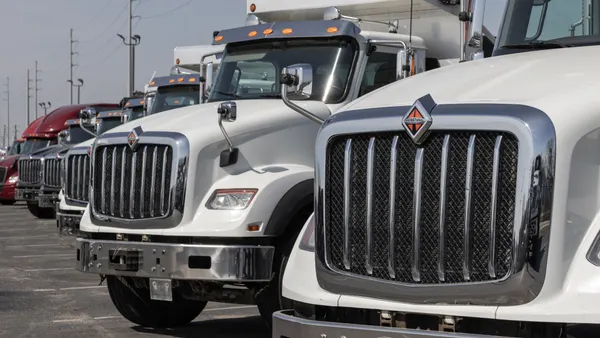Dive Brief:
- Daimler Truck rolled out an autonomous, battery-electric Freightliner eCascadia prototype this week, combining the technologies in a research & development preview billed as “a glimpse into the future.”
- The truck maker packaged Torc Robotics’ Level 4 autonomous sensor suite, which is undergoing tests on diesel Cascadias, to fit the smaller cab configuration of the eCascadia. The compute stack required the installation of an advanced air-cooling system.
- Eventual use cases for the truck will include shorter, repeatable routes with zero-emissions infrastructure, the company said in the announcement. “Depending on the application, future autonomous trucks could also be powered by hydrogen,” it said.
Dive Insight:
Torc, a Daimler subsidiary, has been piloting autonomous diesel Freightliner Cascadias with carriers such as Schneider and C.R. England, hauling freight between Phoenix and Oklahoma City as it prepares for a 2027 market launch.
Daimler Truck North America President and CEO John O’Leary views the OEM’s first autonomous, zero-emissions technology demonstrator as a way to test solutions for customers’ future challenges.
“We want to give them choices that allow them to do what they do best: keep the world moving today and well into the future,” O’Leary said in the announcement. “That takes a lot of foresight, questioning, testing, learning, improving and co-creating with our customers years in advance to ultimately find the right solution. This truck is a great example of the beginning of that development process.”
While the prototype is an AV/EV, the manufacturer is leaving the door open to customers whose preferred solution might be hydrogen, instead of battery-electric.
“By developing a propulsion-agnostic autonomous truck platform, Daimler Truck is leveraging its collective strength to make a positive impact on the future of transportation,” the company said.
That language echoes a talking point of the American Trucking Associations and Clean Freight Coalition. The trucking industry lobbying groups frequently urge regulators to maintain a “technology-agnostic” approach to emissions rules — in other words, open to hydrogen fuel cell and other EV alternatives.
While Torc is first focusing on introducing its technology in internal combustion engine trucks, “we always look further into the future,” said Joanna Buttler, head of Daimler Truck’s global autonomous technology group, in the announcement.
“We will employ an iterative approach to the development, testing and optimization of autonomous-electric technology, while exploring the most promising use cases in collaboration with our fleet customers,” Buttler said.



